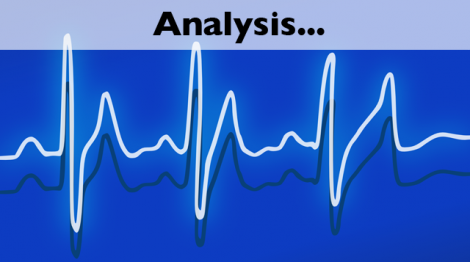
Analysis… Assessing the data
GERMANY: As the German Ethics Council begins its study into big health data, Portal outlines the key issues being explored following the organisation’s annual meeting.
With the quantity of digital data increasing exponentially each year, the health community is now seeking to harness some of the benefits of this growing phenomenon. Health data is being collected in a variety of forms, notably patient records, online medical forms and health surveys, mobile apps and social networks. Now researchers, medical practitioners, and private companies are looking to realise the potential of this growing data minefield that helps to provide an insight into health and lifestyle trends and could assist in new breakthroughs using increasing advanced analytical techniques.
In May, over 500 delegates gathered for the annual meeting of the German Ethics Council in Berlin, where discussions took place on big health data. During the debate, attendees outlined their views on the collection and storage of data and the linking of different datasets, as well as discussing the importance of balancing potentially major advances in medicine that utilise big health data with arising ethical and legal challenges.

According to the council, big health data could lead to changes in the relationship between patients and doctors © Vic
Debating data
Opening the annual meeting, Christiane Woopen, chair of the German Ethics Council, said: “Let us work together to ensure that people do not leave through biologic … self-perception and lifestyles as well as data-driven efficiency hype and optimisation mania … but come in a full life to be with each other.”
Adding his thoughts, the deputy chair of the German Ethics Council, Professor Dr Peter Dabrock, expressed the fear that without an international regulation, the possible quantitative summarisation of Big Data-driven forecasts could lead to a qualitative loss of freedom yet will be sold as increasing self-determination.
Addressing attendees during his keynote speech at the conference, Günther H Oettinger, European Commissioner for Digital Economy and Society, commented that “through the entire value chain”, there is “too little digital sovereignty”.
The German Ethics Council said there was a strong consensus amongst the speakers that there is an urgent need for a public debate about the benefits and opportunities, as well as the shortcomings and risks, arising from the availability of comprehensive records.
Seeking answers
Taking the backdrop of this substantial growth in big health data and growing concerns regarding the use of this information, the German Ethics Council has said that ‘the new abundance of data, in addition to opportunities, creates new challenges for the interpretation of diagnosis, treatment and research’ and has warned that ‘data could increasingly supplant the personal doctor-patient contact’.
As a result, the council is seeking answers to the following questions in order to form an opinion on the use of big health data:
- What are the implications of the interconnection of data on the doctor-patient relationship?;
- What does a more intense and often hardly noticeable collection of health data do for individual self-awareness and freedom?;
- How can individuals, researchers and companies deal with this data responsibly?;
- How can the quality and reliability of complex data evaluations be secure?;
- How can confidence in the research be preserved if test data can be decrypted?; and
- How can the legislature under Big Data conditions contribute to an effective protection of health data?
Defining its view
Following the conference, Portal gathered the views of Dr Nora Schultz, scientific officer at the German Ethics Council, on the outcome of the conference discussions and its key areas of interest in its investigation.
Schultz said: “The German Ethics Council is interested in both the potential benefits of Big Data in the health sector and in the ethical and legal challenges that these developments pose. Our annual meeting examined these issues from several perspectives, considering, for example, technological, theoretical, societal, ethical and legal viewpoints and aspects.”
According to Schultz, there are three areas that are “particularly interesting and potentially problematic developments” in big health data which the German Ethics Council wishes to assess, namely the impact of wearables, medical research, and the analysis of data.
“Firstly, increasing opportunities to engage in ‘self-tracking’ or ‘life logging’ using wearable devices and apps that record parameters such as physical activity, sleep patterns, pulse or emotion promise a better understanding of how the environment and our own behaviour may affect our health and wellbeing. However, without user-friendly and transparent rules for storing, sharing and interpreting such data, this trend also harbours risks that third parties such as employers or insurers might create pressure to access and use such information with potentially detrimental effects to those who collect it or wish to opt out.
“Secondly, medical research also increasingly uses big datasets. These come from very disparate sources, for example large molecular datasets from sequencing projects or brain scans, and are sometimes pooled in even bigger datasets in large biobanks. Even data collected by the aforementioned wearables and apps is finding its way into research projects.
“Challenges here range from finding ways to draw valid conclusions from such large and disparate datasets to adapting consent procedures and protecting participants’ privacy in the face of ‘open data’ trends and increasing possibilities to re-identify even anonymised data.
“Thirdly, as digital collection and analysis of large and diverse datasets also become more common in daily medical practice, we must ask how this may affect patient privacy and patient-doctor relations.”
Expanding her thoughts, Schultz said, “The German Ethics Council has only recently begun its work on the topic of Big Data”, though “the discussions during the annual meeting have confirmed the importance of the topic to the German Ethics Council”.
She added that during the rest of 2015, “the council will address the ethical and other normative issues raised by Big Data developments in the health sector in internal deliberations”, and that she hopes that such efforts will “eventually result in the publication of an opinion document” during 2016.
Brussels’ role
According to the European Commission’s ‘eHealth Action Plan 2012-2020’, key steps need to be taken to realise the full benefits of big healthcare data. The communication states that both e-health and wellbeing ‘are areas with high growth potential’ alongside ‘possibilities for innovation, notably by unlocking effective health data exchange’.
The document cites the ‘lack of legal clarity for health and wellbeing mobile applications and the lack of transparency regarding the utilisation of data collected by such applications’ as barriers to realising e-health deployment. Furthermore, the ‘interoperability of ICT-enabled solutions and of data exchange’ is seen as the ‘precondition for better co-ordination and integration across the entire chain of healthcare delivery and health data exchange’. Such actions, the Commission says, will help realise the EU e-health single market. In addition, Horizon 2020 is backing ‘innovative instruments, tools and methods for unlocking the value of data and for advanced analytics, diagnostics and decision making’.
Balancing ethics and the research potential of big healthcare data is a narrow needle to thread. As the German Ethics Council forms its views on the use of big health data, the Commission is already considering the wide-ranging implications.
Dr Nora Schultz
This article first appeared in the seventh edition of Horizon 2020 Projects: Portal, which is now available .




